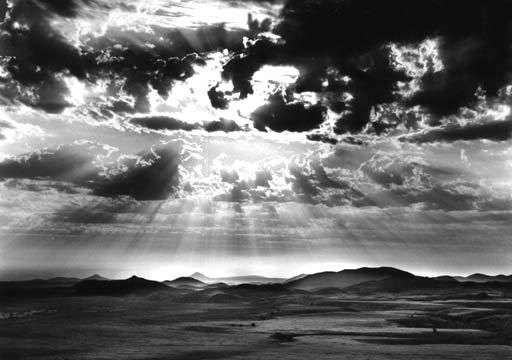
Sebastiao Salgado
Reindeer graze on Russia's Kamchatka Peninsula
After spending decades photographing the machinations of capitalism (and the resulting dereliction of places and peoples), Sebastiao Salgado "lived for about seven years in real desperation." When individuals face formidable adversity or witness untenable horrors, they often turn to religious fellowship for solace. Indeed, the tribal communion of shared faith is a principal reason for religion's evolutionary success. Salgado found hope, however, not in prayer meetings or the Eucharist but in the natural world, in particular the outlying, inhospitable places - the poles, the deserts, the deep rain forests - and the indigenous societies, human and non-human alike, which occupy these regions. His current, on-going series, entitled "Genesis," is a testament to the remarkable restorative powers of Nature.
"I believe that these very political issues are all tied together. When I go to make these Genesis pictures — it’s not that I wanted to become photographer of exotic animals, not that I wanted to do landscape. I worked a lot when I was considering this project with Conservation International, and from them I get [the figure] that 46 percent of the planet is there like the day of Genesis. It is for this that I’m looking. It’s fabulous, to show to the people that live in Los Angeles, San Francisco, New York, anywhere, who imagine that all the planet is destroyed. There is good news, very hopeful news: 46 percent is there yet, not including the oceans. Of course, that is not the majority, the majority we exploit."Today, Salgado is a glass half-full kinda guy and the Genesis photography project helped rescue him from despair.

Sebastiao Salgado
Sun over Namib Desert
Salgado fortified his hope by turning his attention to the land. A cultivated appreciation of the world that birthed us and sustains us (cultivated, in this case, by shedding many of contemporary culture's prejudices and fears) allows us to more fully adopt an integrated worldview. To do so, we must be honest; we must include strip mines, genocide and industry, all products of our special exuberance, in this cultivated consideration. This is the first step in developing a philosophy that might lead to a fundamental restructuring of our globalized economic system. More importantly, the sort of experience one has when you connect to the whole, or as I call it, the Everything, reminds us that the promises of immortal salvation are irrelevant. This life - indeed, this very moment - is worth innumerable afterlives. If we, as a culture, awaken to that truth, sustainability might yet be, well, sustainable.

Sebastiao Salgado
Himbas mother and child with dog, Namib Desert
Photo credits: all images, Sebastiao Salgado; dates vary

1 comment:
"Could the positive changes turn out to be fads?"
I think they probably are - and I say milk the fads for what progress they're worth, before our culture does another about-face, like the American Psycho indulgence of the 80s following the gas shortages/conservation of the 70s. But then, I'm a pessimist.
I do like what you say about this life being worth innumerable afterlives. I just fear that's a concept most people will never embrace. It would demand too much responsibility for improving one's own life, or using one's life to improve the world around us now.
Post a Comment